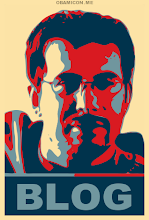SAN LEANDRO, Calif. - Rep. Pete Stark advocated a stimulus bill for the ailing U.S. economy Saturday in San Leandro that would put more money into the hands of people willing to immediately spend it.
A stimulus package that it “timely, targeted and temporary” will pushed through Congress within the next two months, according to Stark..
Last week, President Bush unveiled a $145 billion that illustrated his desire to avoid a prolonged recession during an election year that could further erode the Republican’s power in the legislative and executive branches come November.
Bush’s plan differs from previous ones that sought to make tax cuts for the richest Americans permanent, by focusing on one-time rebates for individuals and allowing businesses to quickly write-off certain expenses.
The bill that Stark is supporting includes extending unemployment insurance, bolstering programs for food stamps and possibly sending a check similar to what Bush attempted in 2001 to quickly inject money into the economy.
Stark, who is chairman of the Ways and Means Health subcommittee, admits his plan is one of many in Congress.
“There’s 535 members and 535 plans,” said Stark, “We hope we can narrow it down to one plan in the next month or so and proceed.”
Stark cited the opinion of many economists who believe the path out of this recession, whether the economy is in the midst of one or whether it’s impending, is through an immediate infusion of consumer spending.
To do that, he says one way is extend unemployment insurance to an extra 26 week and increase the amount of food stamps low-income families receive.
“They will spend that money. They will spend it for rent. They will spend it on clothes for their kids. They will spend it for food and that gets into the economy quicker,” said Stark.
The other idea would be simply sending a check directly to the people in the range of $200-$500 through the tax code, but Stark disagrees with that method.
“The problem I see with that is a lot of low-income people don’t file taxes, so they won’t get a refund,” said Stark.
Instead, by sending checks to those on the lowest end of Social Security payouts the benefits will be available to more people who need it most, according to Stark.
Any plan that is debated before Congress will likely need bipartisan support.
The combination of lame duck president already willing to reignite the economy and vulnerable Republicans in an election year means they may be in the mood to deal with Democrats.
One compromise could be allowing small business owners who invest in equipment to increase the amount of the tax dollars that are deferred over five years, said Stark.
The quickly expanding subprime mortgage problem, that in some ways, triggered the current recession fears, continues to grow as institutions like Citigroup, Merrill Lynch and other overseas banks report record losses and increases the fears of many Bay Area borrowers who received the shaky loans.
A former banker, himself, Stark says that “much depends on banks doing the right thing.”
Banks will save money by not foreclosing and letting borrowers maintain their own homes, instead of allowing a bad asset hurt their bottom line, said Stark.
“If you’re looking for work and you’re paying your taxes and insurance; stay in the house and we’ll add the missed payments to your mortgage. When you get a job, we’ll reset it,” said Stark.



No comments:
Post a Comment